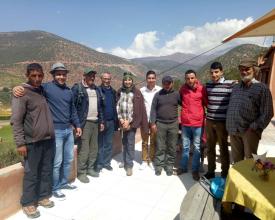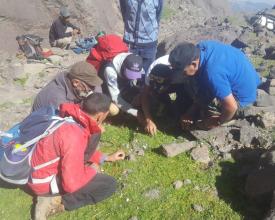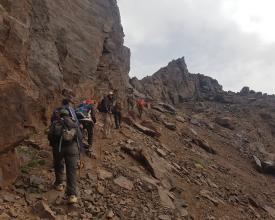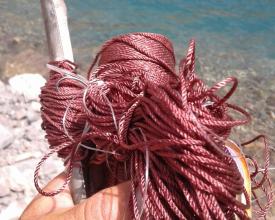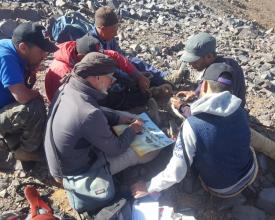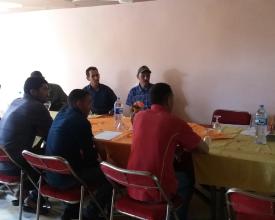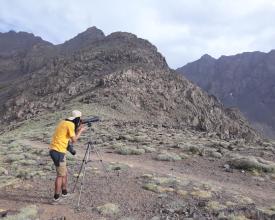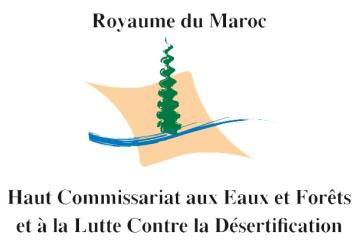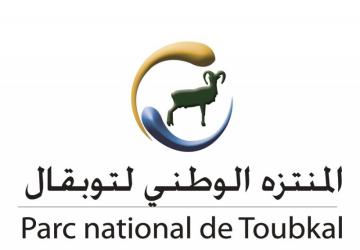
Toubkal National Park: eco-guards in the local community.
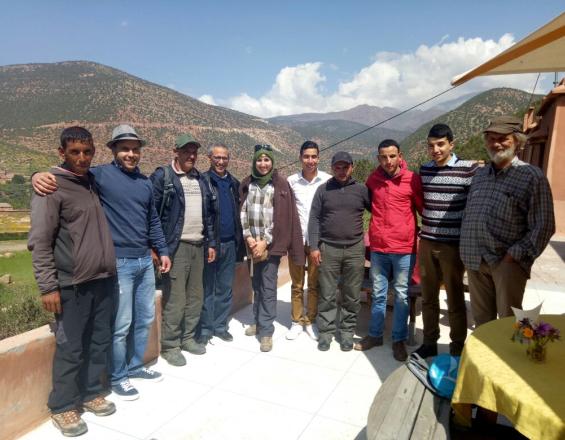
Given that the number of 3 Forest Technicians (Zone Managers) assigned to the Toubkal National Park Directorate (DPNT) was insufficient to honor the mission of monitoring tourist activities and wildlife, and that no recruitment was planned by the High Commission for Water and Forests to Combat Desertification to fill this staffing gap, the DPNT considered recruiting,since 2015, as part of an outsourced service, eco-guards within local communities, and on the basis of very specific profiles (ex: former mountain guide, former poacher).
In addition, to be operational in the field, these eco-guards have benefited from training led by fauna/flora experts and the Toubkal National Park team to identify priority wildlife species, handle the technical equipment made available to them and carry out the monitoring set up by the DPNT.
Context
Challenges addressed
The recruitment of eco-guards from the local community, via an outsourced service, has enabled the Toubkal National Park Authority (DPNT) to solve the problem of the lack of human resources within its workforce and to enable the local community, with its extensive knowledge of the territory, to be actively involved in the management and preservation of the Toubkal National Park, which is under heavy anthropic pressure from users of this protected area (illegal construction, waste, wild encampments, poaching): By recruiting eco-guards from the local community, the DPNT is attempting to meet both an ecological challenge (by reducing the causes of ecosystem degradation) and a socio-economic challenge ( by offering an interesting alternative source of income ("green" job paid at SMAG, social protection) to reduce the rural exodus and make an effective contribution to the local community.
Location
Process
Summary of the process
To enable the local community to reinforce the Toubkal National Park management team in the field, it is first necessary to train the people identified and proposed by the Park's Zone Managers as eco-guards: training in the identification of priority species, in the handling of technical equipment, and in the completion of observation sheets.
Then, when these local eco-guards carry out field prospection operations, the DPNT checks that the data collection forms are correctly filled in and adapted both to the observer and to the database that the DPNT wishes to develop. Readjustments have sometimes been necessary.
After 3 to 4 years of implementation, it finally proved necessary to review the data collection system, which was not sufficiently adapted to the level of study of local eco-guards, and was too tedious in terms of data centralization and synthesis: a mobile application developed from the CyberTracker software would thus make it possible to resolve these shortcomings. We'll be testing it from the end of October 2019.
Building Blocks
Wildlife monitoring training
The local eco-guards recruited via an outsourced service had a perfect knowledge of the high mountains and their inhabitants. However, they had gaps in their knowledge of the identification of certain fauna species, and had never carried out monitoring according to a pre-established data collection protocol.
It was therefore essential for them to benefit from training sessions in this area: theoretical sessions in the classroom to familiarize themselves with species identification and data collection sheets, and to start handling technical equipment such as GPS and digital cameras (01 day/session), and practical sessions in the heart of the Toubkal National Park (PNTb) to assess the beneficiaries' physical abilities and knowledge of the mountain territory, and to apply what they had learned during the theoretical sessions (06 days/practical session).
Enabling factors
It is important to have a budget for logistics, i.e. accommodation and catering for beneficiaries, and the rental of camping equipment, particularly for practical sessions in the high mountains.
During the 1st session, forestry technicians from the Toubkal National Park (PNTb) also had to be trained by the wildlife expert so that they could lead the subsequent training sessions themselves, scheduled by the PNTb management.
Lesson learned
It is necessary to organize several training sessions to ensure that the eco-guards are able to perfectly identify the priority fauna species and correctly draw up the collection sheets.
However, it turned out that most of the eco-guards were also illiterate and had great difficulty in filling in the collection sheets: the Toubkal National Park Management therefore planned to adapt the CyberTracker software to its monotoring and to train its eco-guards in it (from the end of October 2019) so that data recording would be much easier for them.
Data collection system in Toubkal National Park
Between 2015 and 2019, the Direction du Parc National de Toubkal (DPNT) has developed data collection sheets for monitoring i) infractions linked to tourism activities, and ii) wildlife.
These are paper sheets given to local eco-guards to fill in during their field surveys, illustrate with photographs and then hand over to the Toubkal National Park Zone Managers (PNTb): from these sheets, the latter then draw up quarterly reports and location maps for the DPNT, which feed into a database.
From the end of October 2019, the DPNT plans to improve and facilitate data collection for local eco-guards: the Toubkal National Park ecotourism officer, in collaboration with the scientific monitoring officer and the PNTb zone managers, has adapted the CyberTracker software for this protected area in order to develop an easy-to-use mobile application for monitoring in the Toubkal National Park. Training in the use of this application is planned in the near future for the PNTb's eco-guards.
Enabling factors
Training in monitoring (types of data to be collected, filling in forms, use of GPS and digital camera) is an absolute prerequisite before local eco-guards can begin field surveys.
Rigor in data collection by the eco-guards, then in the centralization and synthesis of this data by the Toubkal National Park Zone Managers.
In addition, the use of the GIS tool by the latter is not superfluous.
Lesson learned
Thanks to this monitoring system set up by the DPNT, a veritable database has been created and periodically updated, enabling us toimprove our knowledge of wildlife (for priority species) and the location of "black spots" relating to tourist activity.
Better still, the implementation of these patrols and monitoring operations in the Toubkal National Park has reduced the reaction time between the discovery of an offence in the core zone and the issuing of the Official Statement of Offence, as the local eco-guards are constantly on the ground and in permanent contact with the PNTb Zone Managers (thus playing a key role in the fight against poaching and illegal construction).
However, it turned out that the local eco-guards still had many shortcomings in data collection, mainly due to the fact that many of them are illiterate. The CyberTracker software seems an interesting solution to this problem. To be continued...
Impacts
Since the introduction of patrol operations led by local eco-guards, we can already note, for example, a reduction in the reaction time between the observation of an infraction in the central zone of the Toubkal National Park (PNTb) and the issuing of the official report (these eco-guards are constantly on the ground and in permanent contact with the PNTb Zone Managers), a drop in the number of new illegal constructions or illegal fishing at Lake Ifni.
In addition, a database of wildlife observations has been set up, and these eco-guards have played (and are still playing) an active part in the fight against poaching and in the implementation of conservation actions (e.g.: food reinforcement for the Bearded Vulture).
In view of these encouraging results, and also to improve control and surveillance on the PNTb territory, the DPNT plans to increase the number of eco-guards, on critical sites and periods, from 8 to 22 eco-guards (!) from October 2019.
Beneficiaries
This recruitment of eco-guards will primarily benefit residents of the outlying area of the Toubkal National Park (PNTb), but will also benefit the PNTb management.
Sustainable Development Goals
Story
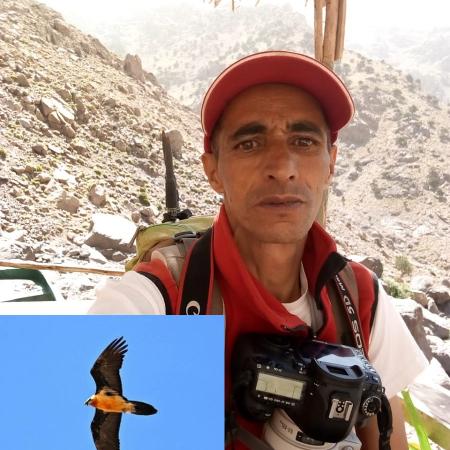
Since 2016, the Direction du Parc National de Toubkal (DPNT) has been training men from the local community in wildlife monitoring. Among these eco-guards, some have shown more aptitude than others for learning this new trade, developed on the Park's territory.
This was the case, for example, for two former mountain guides, who turned out to be real wildlife enthusiasts, but also photographers.
Indeed, it was very difficult to obtain quality images of Barbed Mouflons or Bearded Vultures observed in the central zone of the Toubkal National Park (PNTb): and yet, it was thanks to these 2 local eco-guards that we were finally able to feed our database with photographs, proving the presence of these 2 endangered species, emblematic of the Park.
And best of all: although these 2 local eco-guards have left their posts with the DPNT to return to their jobs as mountain guides, they continue to send us photographs of Mouflons or Gypaètes encountered during their hikes in the heart of the Toubkal National Park!
